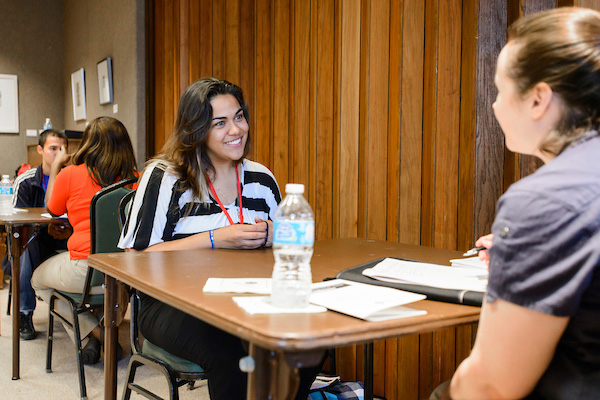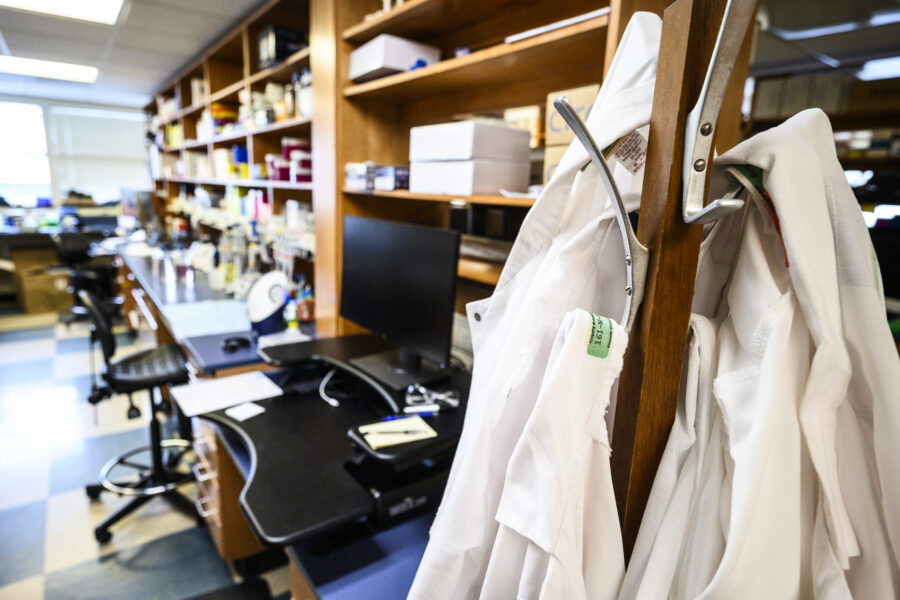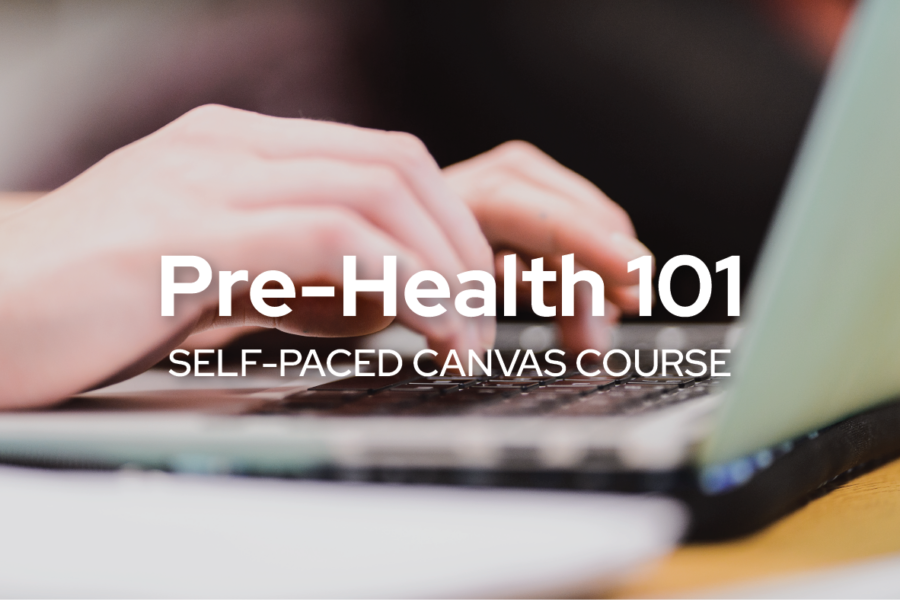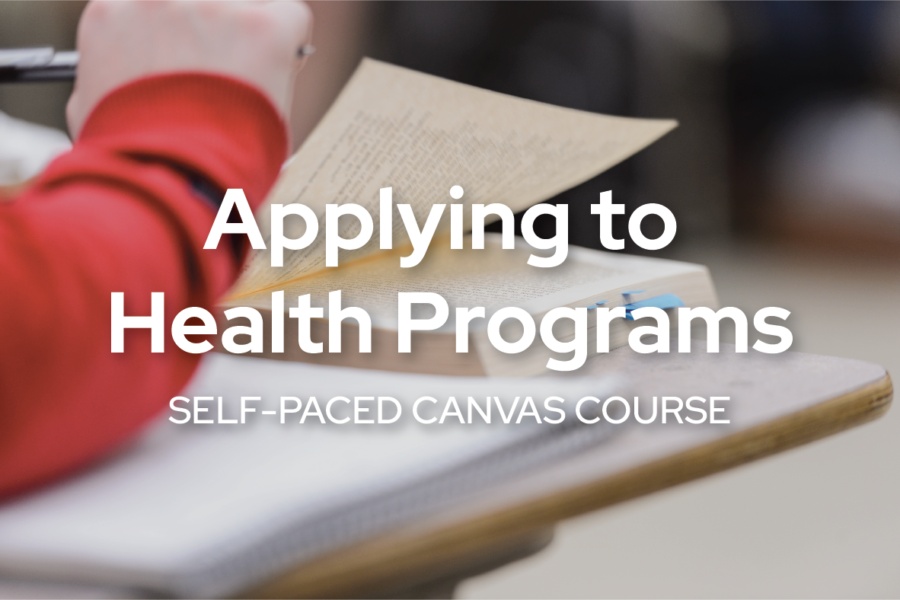About Physician Assistant Training
In recent years, there has been a surge of interest in and applications to physician assistant programs. Physician Assistants practice medicine under the supervision of a physician, but have considerable job autonomy including the ability to diagnose and write prescriptions. PAs also have the opportunity to change specialties over the course of their careers.
Explore Your Interest in Physician Assistant
Shadowing & Informational Interviews
An excellent way to explore your interest in PA is by observing providers and most PA programs require a certain number of hours of observations in different settings. If you have friends or family who work in healthcare (in ANY role) ask if they know any PAs and try to arrange a Zoom chat. Look for PAs on LinkedIn, Instagram, or TikTok and see if they are willing to talk about their career.
Volunteering
PA programs look for applicants who demonstrate a sustained commitment to serving others. Learn more about opportunities to volunteer in clinical and non-clinical settings.
Jobs
Patient care experience is essential for PA programs! Patient care experience usually entails having responsibility for care and this kind of responsibility usually comes with a job. Some students earn a certification as a CNA or EMT to acquire hours, but there are many jobs in clinical settings that will train you. Jobs are a great way to learn about the practical aspects of the field and confirm that this work is something you enjoy!
Preparing for PA School
PA schools use a process called holistic review to weigh personal factors, academic preparation, and professional experience when reviewing an applicant’s “readiness” for a Physician Assistant program. Put together, these create a picture of you as a whole person.
In addition to having a clear motivation for the field,completing required coursework, shadowing, experience in clinical and community settings, and hobbies and interests are common admissions factors for PA schools. You may need to take the GRE depending on the program.
Requirements vary from school to school, so it’s always necessary to consult program websites.
PA Required Coursework
| Topic | Credits/Semesters | UW-Madison Courses | Is AP Accepted? |
|---|---|---|---|
| Biology | 8-10 credits or 1-2 semesters with labs | Choose one of the following sequences: Zoology 101-102 and an additional bioscience course with lab such as Botany 130, Anat&Phy 335/435, OR Anat&Phy 337 and 338 Biology 151-152 Biocore 381-382 AND 383-384 satisfies Intro to Bio requirements *Biocore: Students must apply to enroll in Biocore. For more information, visit their website. | If you have AP credit for Biology, plan to enroll in additional advanced Biology (see Additional Biology section below) once you've finished your intro Biology sequence. |
| General Chemistry | 8-10 credits or 1-2 semester with with labs | Choose one of the following sequences: Chemistry 103-104 Chemistry 109* Chem 115-116 (intended for Chem majors) *Many accept Chem 109 as equivalent to two semesters of inorganic chemistry; some may ask for a letter from the UW-Madison Chemistry Department describing the condensed nature of Chem 109. See Pre-Health Advising for more information if you have taken Chem 109 | If you have credit for Chem 103, plan on taking Chem 104 so you have chemistry at the college level |
| Organic Chemistry | 3-4 credits or 1 semester with lab | Choose one: Chem 341-342 Elementary Organic Chemistry Chem 343/345/344 Introductory and Intermediate Organic Chemistry with lab | |
| Biochemistry | 3 credits or 1 semester | Choose one of the following courses: Biochemistry 501 Biochemistry 507-508 (intended for Biochem majors) | |
| Anatomy/Physiology | 8-10 credits *Labs sometimes required | Anat/Phys 337 & 338 AND Anat/Phys 335 OR 435 | |
| Microbiology | 5 credits or 1 semester with lab | Choose one of the following options: Microbio 101-102 Microbio 303-304 | |
| Social Science | Varies widely across programs! May include: Intro psych, lifespan development, and/or abnormal psych | Intro Psych 202 or 281 (H) Adult Psychopathology Psych 405 Development - some programs want to see human development across the lifespan. Select (1) course from each group: Early Development HDFS 262 Psych 460 Ed Psych 320 Ed Psych 331 Adult Development HDFS 263 Psych 464 | If you have credit for AP psych, plan on taking additional psych |
| Humanities | Take 6 credits of English. Some programs specifically require a Speech course | Learn more: English Requirements for Health Programs | If you have AP English, take higher level English classes in college |
| Strongly Recommended | |||
| Statistics | 3 credits or 1 semester | If you have AP credit for stats, consider taking stats on campus | |
| Sometimes Required | |||
| Medical Terminology | 3 credits or 1 semester | Classics 205 | |
| Organic Chemistry* *Not many PA programs require 2 semesters of organic chemistry with lab which is why it is listed as “sometimes required” | 6-8 credits or 2 semester with lab | Chem 343/345/344 Introductory and Intermediate Organic Chemistry with lab | |
| Additional Biology | Some schools require a number of credits rather than specific courses. | Options include: Immunology 341 Genetics 466 Cell Biology 570 Neurobio 523 Oncology 401 Zoo 400 Biochem 510 |
Physician Assistant programs require patient care hours defined as having some level of responsibility for patients. Patient care requirements can vary by program and in CPHA, we recommend having at least 1,000 hours at the time you apply. Paid clinical experience is essential to PA programs so you have experience working with patients in healthcare teams prior to starting the academically accelerated training of a PA program. You can diversify your patient care experience by working outside of hospital settings such as continuing care, in-home care, or free clinics. Choose the patient care activities that you are most interested in and/or that are required by your health fields.
PA programs look for applicants who demonstrate a sustained commitment to serving others in healthcare and community settings and some volunteering experiences can count as “patient care” when you have responsibility for care. Good examples would be domestic abuse intervention, or sexual assault crisis counseling. Learn more about opportunities to volunteer in clinical and non-clinical settings by visiting our Volunteering page.
Research is an important way to develop skills that help you hone your capacity to learn and begin to contribute to the generation of new knowledge in fields of inquiry. Working in a research lab also gives you the opportunity to cultivate relationships with faculty who can serve as letter writers when you apply to a PA program.
The Graduate Record Examination (GRE) is required by some, but not all, DVM programs. The GRE is not a content exam meaning you do not need specific classes to take it. The GRE evaluates your writing, reasoning, and basic quantitative reasoning skills. Enroll in CPHA’s Applying to Health Professions self-paced course to learn more about the GRE.
What is the GRE?
The Graduate Record Examination (GRE) is a standardized content exam designed to assess verbal reasoning, quantitative reasoning, critical thinking and analytical writing skills. The GRE is an adaptive exam meaning that the difficulty of the questions you see are based on the number of correct responses you provide. Raw scores are scaled on a range of 130-170 for the verbal and quantitative reasoning sections and 0-6 for the written section.
- Verbal Reasoning (27 items) asks you to analyze and draw conclusions from discourse; reason from incomplete data; identify author’s assumptions and/or perspective; understand multiple levels of meaning, summarize text; understand the meaning of individual words, and relationships among words and among concepts.
- Quantitative Reasoning (27 items) includes algebra, data analysis, quantitative comparison, probability, statistics, and math word problems.
- Analytical Writing requires you to provide a focused response and assesses the clarity, focus, relevance, and your command of English of that response.
GRE Exam Overview
| Section | Number of Questions | Time Allotted |
|---|---|---|
| Analytical Writing | Analyze an issue or task | 30 minutes |
| Verbal Reasoning | Section 1: 12 Questions Section 2: 15 Questions | Section 1: 18 minutes Section 2: 23 minutes |
| Quantitative Reasoning | Section 1: 12 Questions Section 2: 15 Questions | Section 1: 21 minutes Section 2: 26 minutes |
| Total Content Time | 4 hours, 20 minutes | |
| Total Test Time | 3 hours, 35 minutes |
The Analytical Writing section will always be first. The Verbal Reasoning and Quantitative Reasoning sections may appear in any order after the Analytical Writing section. Section 1 of the verbal and quantitative reasoning section provide the baseline for the difficulty of questions you see in section 2.
GRE Timelines
After completing the GRE, you get an unofficial score and will receive an official score within a month. Since the GRE is not a content-based exam and scores are valid for 5 years, you can take the exam when it suits you. Many students choose to prepare and take the exam during the summer a year before they apply. The GRE is offered year-round at ETS testing sites across the country so finding a test date typically is not a problem.
Studying for the GRE
There isn’t one “right” way to do well on the GRE, but people who are successful do these things:
- Assess yourself! You need to be honest with yourself about:
- Your attention span and the breaks you need
- Your test stress – you will need longer to prepare if you have high test stress
- The types of resources that work for you. It’s okay to try new study techniques and tools, but you cannot use all of them. If you convince yourself that you must complete everything in one section before you can move on, you will not make progress.
- Carve out regular time to study. You must build this into your schedule. If you study during the regular semester, treat the GRE like a class and block time for it!
- If you have low test stress (exams are your superpower!), carve out 10-12 hrs/week over 4-6 weeks
- If you have normal test stress, carve out 10-12 hrs/week over 8-12 weeks
- If you have high test stress, carve out 10-12 hours/week over 16-20 weeks
- You might take a course if you know you need the structure of a course and want some tutoring that often comes with it. However, you do not need a course to do well on the GRE if you can structure your time.
- Practice reading online so you get faster at reading passages; refresh math through pre-calc
- Take practice exams! Taking a practice exam before you start studying shows you your strengths and weaknesses and allows you to prioritize content.
- The module “Prepare for the GRE” on “Applying to Health Professions” has more information on study plans, resources, and tips. Enroll in CPHA’s Applying to Health Professions course – it’s free!
Application Process
PA schools use a central application called CASPA, similar to the Common App, to collect biographical information, academic information, experience, and letters of recommendation in one place for schools to review. Applications open in April and it CAN be important to submit early if a school uses rolling admissions so talk to us in CPHA about timing. Most schools also give you a chance to submit additional essays that are specific to their school called secondary essays. These essays are a chance to “speak” directly to a school about your interest in their program.
If a PA program does interviews, they can begin as early as July and go through December. In January, you can attend second-look weekends if you have been offered a spot at a school. Schools (and applicants) finalize their decisions in February and March, and you begin your program in June. The entire application process takes a full year!
Related CPHA Canvas Courses
Enroll in Pre-Health 101
Our most important advising resource for first year students is Pre-Health 101, our online orientation on Canvas. It provides an overview of pre-health classes, activities, application timelines, and more.
Applying to Health Programs
CPHA runs a Canvas course called Applying to Health Programs, a non-credit course designed to help you with the process of applying to PA programs. In this course, you'll learn about the application, getting organized, writing essays, preparing for the GRE, school selection, paying for the application and PA school, interviews, and more.
Career Resources
The Physician Assistant Education Association (PAEA) represents all of the accredited PA programs in the United States. THE PAEA is a central hub for learning about PA programs and the CASPA. It also provides a variety of online resources for prospective PA students, including the website PA Focus.
The American Academy of Physician Assistants (AAPA) is the national professional society for Physician Assistants. The AAPA works to provide professional education, to advocate on behalf of the profession, and to improve healthcare quality.
And, check out a pre-PA student organization on campus like the Aspiring Physician Assistant Association!




